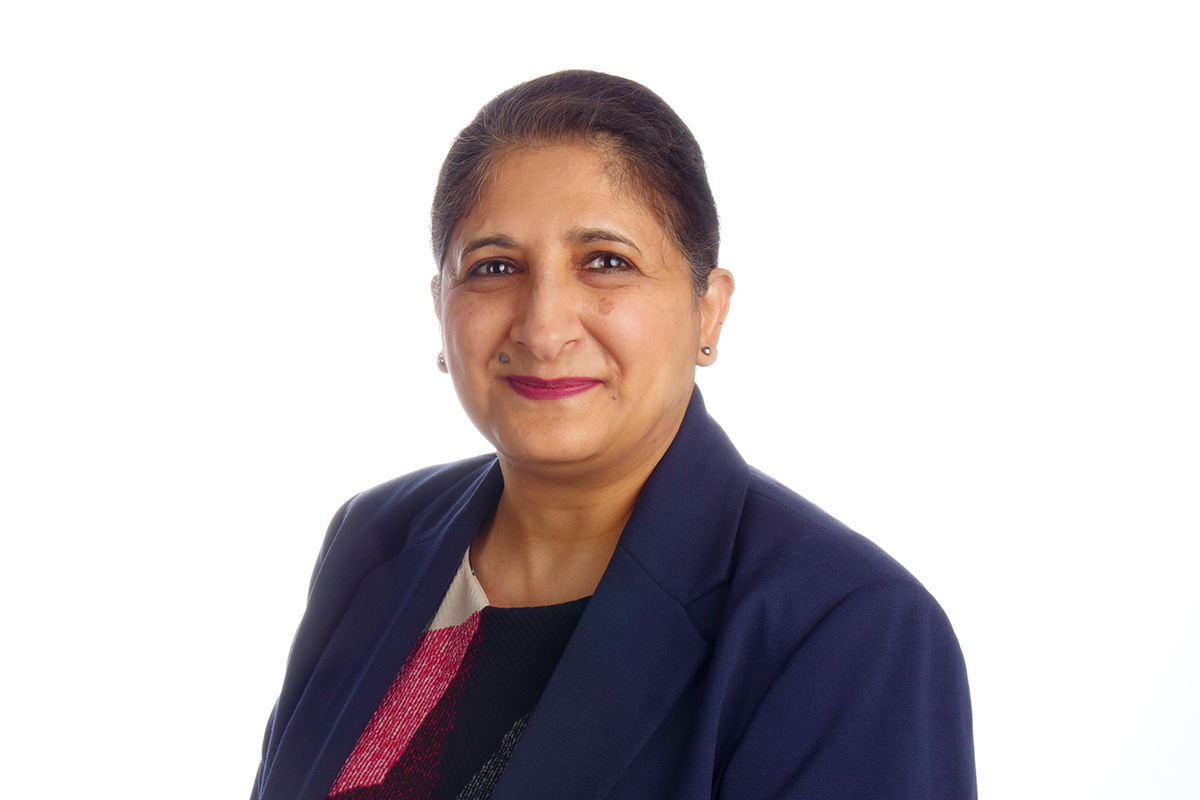England named among the highest performing Western countries in global education study- Sector Response

- England is among the highest performing European and Western countries for education
- Raising standards continues to be a long-term priority of the Government
- 89% of schools now rated good or outstanding, up from just 68% in 2010
Pupils in England have risen up the international rankings for maths, placing England as one of the top performing countries in the western world.
A worldwide education study published today (5thDecember 2023) shows England has significantly outperformed the international average and risen from 17th for maths in 2018 to 11th, and from 27th in 2009.
The Programme for International Student Assessment (PISA) is an international assessment of 15-year-olds’ mathematics, reading and science ability. Conducted by the OECD, it is widely accepted as the international benchmark for academic attainment for secondary school pupils.
These strong results demonstrate that the government has made real progress in driving up standards. We are determined to build on this success and take the long-term decisions necessary to improve attainment for generations to come.
This is why in October, the Prime Minister set out a bold new plan to introduce a new baccalaureate style qualification – the Advanced British Standard (ABS) – that we will see every student in England study some form of maths and English to age 18, giving them the skills they need to succeed. As part of this, the government has already announced an investment of £60 million over two years to further improve maths education and help lay the groundwork for the introduction of the ABS.
Today’s results also show that England has ranked13th for both reading and science, having been placed at 14th and 13th respectively in 2018 and 25th and 16th in 2009.
They build on England’s significantly improved position for 9- to 10-year-olds reading ability in a separate international study earlier this year, PIRLS, in which English children were ranked fourth out of 43 comparable countries – making them the best in the West.
Education standards have risen sharply since 2010, with 89% of schools now rated good or outstanding by Ofsted, up from just 68% 13 years ago.
Education Secretary, Gillian Keegan, said:
“These results are testament to our incredible teachers, the hard work of students and to the Government’s unrelenting drive to raise school standards over the past 13 years.
“Taken together with our children being named ‘Best in the West’ for reading earlier this year, England is now firmly cemented as one of the top performing countries for education in the western world.
“Our teachers, head teachers and support staff should be incredibly proud of their role, day in and day out, transforming education standards in this country and giving our children the platform to build successful careers and compete for the best jobs in world.”
Aside from attainment, the report has also highlighted other positives findings, including that England’s education system is more equitable that most– meaning that all children all have access to a brilliant education and a chance of success, no matter their background.
Additionally, the report found that pupils in England were generally more positive about the quality of their maths lessons and the support given by their teachers, than the OECD average.
The Government has enjoyed considerable success for maths over the years, with England achieving our highest ever score in primary school maths in TIMSS 2019. Over £100 million has been invested in the Maths Hubs programme, whose flagship Teaching for Mastery offer will have reached 65% of secondary schools by 2025. To help boost maths attainment further, the Government also announced the creation of a new National Professional Qualification in April to help embed best practice in their schools.
The report does highlight the challenge of the pandemic. In England, pupils have been supported to catch up with almost £5 billion available for education recovery measures, including more than £1 billion for the National Tutoring Programme alone, which has revolutionised the way targeted support is provided for the children and young people who need it most.
The report also found that the majority of pupils in England reported feeling safe in their schools.
Sector Response
Democrat Education spokesperson, Munira Wilson MP said:
“This Conservative government has let down our children. Pisa rankings were delayed a year because of the pandemic, and the results published today show the direct effect that Covid has had on children’s learning.
“Tutoring could have been at the core of an ambitious catch-up plan, but instead the Tories botched the contract with Randstad and spent just a third of what their own advisers said was needed. The result is that the GCSE results gap between disadvantaged pupils and their classmates is the highest in a decade.
“Rishi Sunak wants all pupils to study maths to age 18, but the results today show that this Conservative government is failing children in maths long before they reach that age.
“Liberal Democrats would invest in our children’s future and offer free small-group tutoring to 1.75 million children a year who struggle with their learning”.
Wales Education Minister Jeremy Miles said:
“Before the pandemic, we saw a strong improvement in literacy and numeracy standards in Wales. Sadly, it is clear that the pandemic has derailed some of this improvement.
“We have already started on a path of driving up standards in reading and maths and we won’t let these results knock us off track/
“Last month we launched literacy and numeracy plans to help support learning and raise standards in these key areas. I have also published the first national report on the performance of our children in reading and numeracy and will do this annually to track recovery. “We supported our schools and learners through the pandemic, we will stand together and support them now.”
Since 2022, schools in Wales have started implementing major long-term reforms, with the new Curriculum for Wales being taught and rolled out sequentially to reach all learners in all schools from 2026/27.
Jeremy Miles continued:
“Our long-term education reforms have now started after years of planning and, as the OECD have said, improvement to education takes time.
“We have taken a once-in-a-generation opportunity to revolutionise the quality of education in Wales and I’m confident we will deliver huge benefits for our young people.”
Catherine Sezen, Director of Education Policy, Association of Colleges, said:
“This year’s Pisa results show the importance of continuing to support schools and colleges in their work responding to the impact of the Covid pandemic. Perhaps the most significant findings point to the importance of supporting young people’s life satisfaction and sense of belonging in order to support academic success in mathematics and reading.
“Colleges work with a range of young people, but around 40% of 16-year-olds struggle to achieve GCSE English and maths in secondary school. We know that large numbers of that 40% come to college disengaged and not wanting to continue with these key subjects because of their negative experience of the GCSE in school.
“We therefore need a new plan for English and maths for the whole cohort, and AoC has been pushing the Government to seriously rethink how both subjects are taught and assessed in Key Stage 3 and 4.
“With the Prime Minister rightly wanting English and maths learning to continue to 18 as part of the Advanced British Standard, now is the time for the Government to work with colleges and schools to review the qualifications on offer in Key Stage 4, as well as the route for students who haven’t achieved their grade 4 in GCSE English and maths at secondary school.”
Paul Whiteman, general secretary at school leaders’ union NAHT, said:
“The pandemic has undoubtedly had some impact on these results. But after a decade in which investment in our schools has been nowhere near what is needed and they are struggling with a growing recruitment and retention crisis, it is notable that the OECD also highlights the effect of other underlying issues facing education systems. The dedication of schools in helping pupils through this difficult time and its aftermath hasn’t been matched by the level of government ambition or investment required.
“While international comparisons can be interesting and useful, we have to be very careful not to over-interpret these results. The value in studies like PISA are the questions they raise for policy-makers, but rankings or league tables are unhelpful and can be misleading if we’re not careful. We of course should be keen to learn from other nations – that requires a deep understanding of different systems and not just simplistic comparisons. We also need to factor in that different nations will be at different stages of education policy development, and that can influence the results too.
“It is important that politicians and policy makers remain inquisitive about these results, rather than using them for political ends.”
Geoff Barton, General Secretary of the Association of School and College Leaders, said:
“PISA is useful in looking at how some elements of education systems compare internationally and what lessons may be learned. However, it shouldn’t be read as a judgement on the quality of education systems in their entirety.
“PISA is a certain type of test which examines the application of skills and knowledge in maths, reading and science to meet real-life challenges. This is important. But teaching and learning in all the UK nations is broader and richer than the focus of these tests, both in these particular subjects and in the wider provision and curricula, such as arts, humanities, and sport. This is a proud tradition of our education systems.
“PISA should not be used for cheap political point-scoring, to justify a narrowing of the curriculum or to denigrate the work of schools in any UK jurisdiction, particularly in the context of severe funding pressures, teacher shortages, the uneven impact of the recent pandemic and the subsequent cost-of-living crisis.”
Natalie Perera, Chief Executive of the Education Policy Institute (EPI), said:
“Today’s PISA results confirm that England, alongside many other OECD nations, has experienced considerable learning loss as a result of the Covid-19 pandemic. However, England does remain above the OECD average in all subjects: maths, reading and science.
“As well as considerable declines in attainment, the reported life satisfaction scores of UK students fell drastically between 2015 and 2022, to the extent that the UK now has the second lowest average life satisfaction of 15 year olds across all OECD countries.
“The government must prioritise education and, in particular, address the urgent teacher recruitment and retention issues that the country is facing. But the challenges for young people span wider than just education. In order to thrive in school and out, children and young people need to have improved access to public health services, safe and secure housing and be without the threat of living in poverty.”
Daniel Kebede, General Secretary of the National Education Union, said:
“It takes a very opportunistic government to present the OECD’s depiction of a global crisis for education as a national success story. In England, as in nearly all countries entered in PISA, the impact of Covid means that students’ results in Reading, Maths and Science are lower than in 2018. The average fall in England is less sharp than in some other countries and as a result England’s league table position has improved slightly.
“Though there are questions surrounding the data, with the UK’s response rate being below the average, they give grounds for congratulating schools on their work during and after the pandemic. But this should not be the occasion for a fanfare: England’s schools have been sold short by their government for more than a decade. It is the evidence of that dismal record that policy-makers should now be scrutinising, rather than seeking crumbs of comfort from data which do not provide it.
“The OECD bears some responsibility for this elevation of spin above substance. Its research and policy-thinking is often serious and valuable. But the organisation really should think again about the way it publishes PISA test results. The technical detail of its report acknowledges the uncertainty of the scores it presents. But it proceeds nonetheless to display them in authoritative and misleading league table form.”
Dr Patrick Roach, General Secretary of NASUWT – The Teachers’ Union, said:
“It is beyond doubt that children and young people across the UK have continued to benefit from high-quality educational provision thanks to the dedication, skill and professionalism of their teachers and school leaders. They should be applauded for their incredible work and better recognised and rewarded for their efforts, too.
“However, the achievements reported by the OECD have been possible despite and not because of the actions of the Government, which has presided over a deepening crisis in our schools. These achievements could have been even greater if the Government had taken the actions needed to tackle causes of the worst teacher recruitment and retention crisis we have seen in living memory – one that continues to place the future of the UK’s education systems at unacceptable risk.
“Whilst the PISA studies provide a rich source of data and information that countries should examine, the OECD also make clear that it is not possible to use the results of these studies to draw hard and fast conclusions about the performance of education systems relative to others.
“Ministers seeking to take credit for the country’s position in the ‘PISA league table’ should so do with caution.
“It is abundantly clear that whilst teachers and school leaders are delivering for pupils, the Government is failing to invest and deliver the support that our schools need.”
Lee Elliot Major, Professor of Social Mobility at the University of Exeter, said:
“It remains a national education scandal that just under a quarter of the UK’s 15-year-olds are unable to master the basics in maths, while a fifth fail to meet basic standards in reading and science. These damning figures are once again revealed by the latest PISA comparisons.
“We must face up to the reality that England’s education system fails a significant group of young people; we need a more equitable approach to enable all young people to achieve the skills needed to function and flourish in life.
“Failing to master the basics is hugely damaging to the life prospects of school leavers who are unable to digest a train timetable or understand a medical prescription and is damaging to the nation’s health and productivity.”
Rich Lewis Jones, CEO of Sigma Labs, part of The IN Group:
“A strong education system is vital for the future of the UK workforce and it’s also important to look to the pathways on offer beyond school and university. Training providers have an important role to play in bridging the transition from education to the workplace and providing young people with in-demand professional level digital skills and the high-performance behaviours they need. These can build on a strong educational foundation, training young people in core areas such as soft skills, problem-solving, data, software and cloud, which can unlock their potential and bridge the digital skills gap.”
Margo Walford, Found of Change Awards, commented:
“The digital skills crisis is an ongoing issue, and our businesses are struggling to find the necessary people to fill vacancies within their organisations, so it is positive to see the UK rising in the international education rankings. For businesses to grow and foster an environment for innovation to take place we must furnish the younger generations with the skills and knowledge they need, supporting the goal of becoming a technology superpower.
“The newly announced schemes are designed to support all young people to gain much-needed skills and must be supported by businesses offering further training opportunities. The future generations will be the engine behind change and innovation, and cultivating that change mindset is key, so providing educational and training opportunities from school leavers age, throughout university and into the workplace is vital.”












Responses